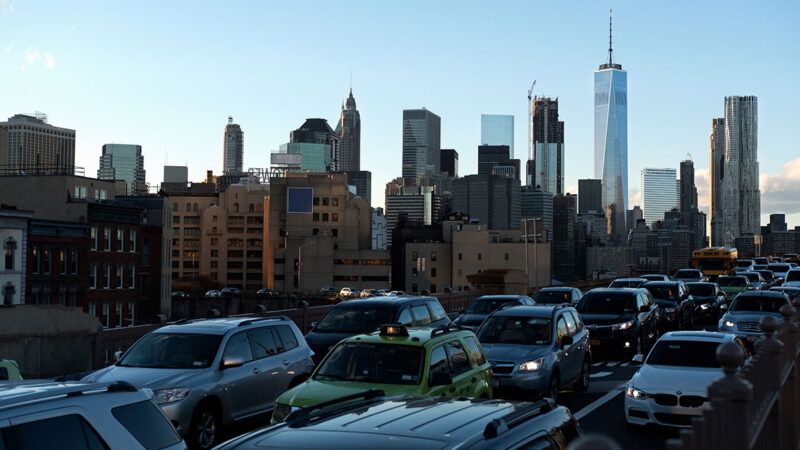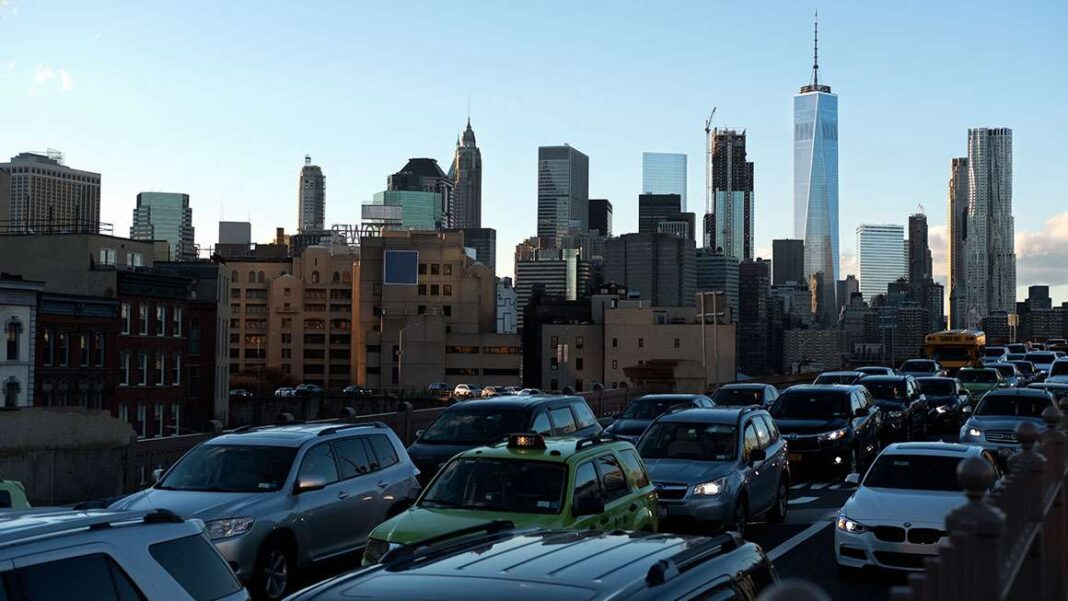A market solution to heavy traffic is mired in an interstate legal fight.

(Photo: Ian D. Warren/iStock)
Since 2019, New York has sought to establish the nation’s first congestion pricing zone, which would charge drivers fees for rush hour trips to improve traffic flows and raise funds for the city’s dilapidated subway system. That plan to toll drivers entering lower Manhattan’s gridlocked streets recently hit another roadblock: New Jersey.
Congestion pricing would provide important benefits to drivers themselves. Less gridlock means Manhattan’s roads can handle more cars. Faster travel speeds allow people with pressing errands to get where they need to be on time.
New Jersey officials, however, argue that congestion pricing is a thinly disguised “shakedown” of their suburban constituents who commute to Manhattan. They complain that New Jersey drivers heading to New York would be charged thousands of dollars a year to pay for trains they don’t use.
Because New Jersey’s demands that New York exempt Garden State motorists from the toll scheme have fallen on deaf ears, elected officials are resorting to the courts. In July, New Jersey filed a lawsuit challenging federal officials’ approval of New York’s congestion pricing plan. That move could delay implementation for years.
The planned congestion fees would hit drivers on federally subsidized highways, which requires approval from federal highway officials. Before they could give New York the green light, federal regulators had to produce a lengthy report on any environmental effects congestion pricing might have, a requirement imposed by the National Environmental Policy Act (NEPA).
NEPA allows third parties to sue federal officials if they think an “environmental assessment” is incomplete. To head off such litigation, the Federal Highway Administration spent years producing a 958-page report detailing all the potential effects of congestion tolls. Creating that study delayed New York’s implementation of congestion pricing from the initial target date of January 2021 to 2024.
As soon as the ink was dry on the study, New Jersey filed a lawsuit claiming more analysis was needed. If a federal judge agrees, congestion pricing might not begin before the decade’s end.
Lawsuits like New Jersey’s are “extremely normal,” says Eli Dourado of the Center for Growth and Opportunity. “Plaintiffs bring a complaint [that] doesn’t state the true objection to the project. They sue on environmental grounds because that’s the course of action that’s available to them.”
Cynical NEPA suits have delayed everything from new highways to new windmills to space launches. They’ve become so common that liberals and conservatives alike blame the law for making America the “build nothing” nation. Unless the law undergoes some serious reforms, Manhattan’s roads will continue to look like a parking lot.





